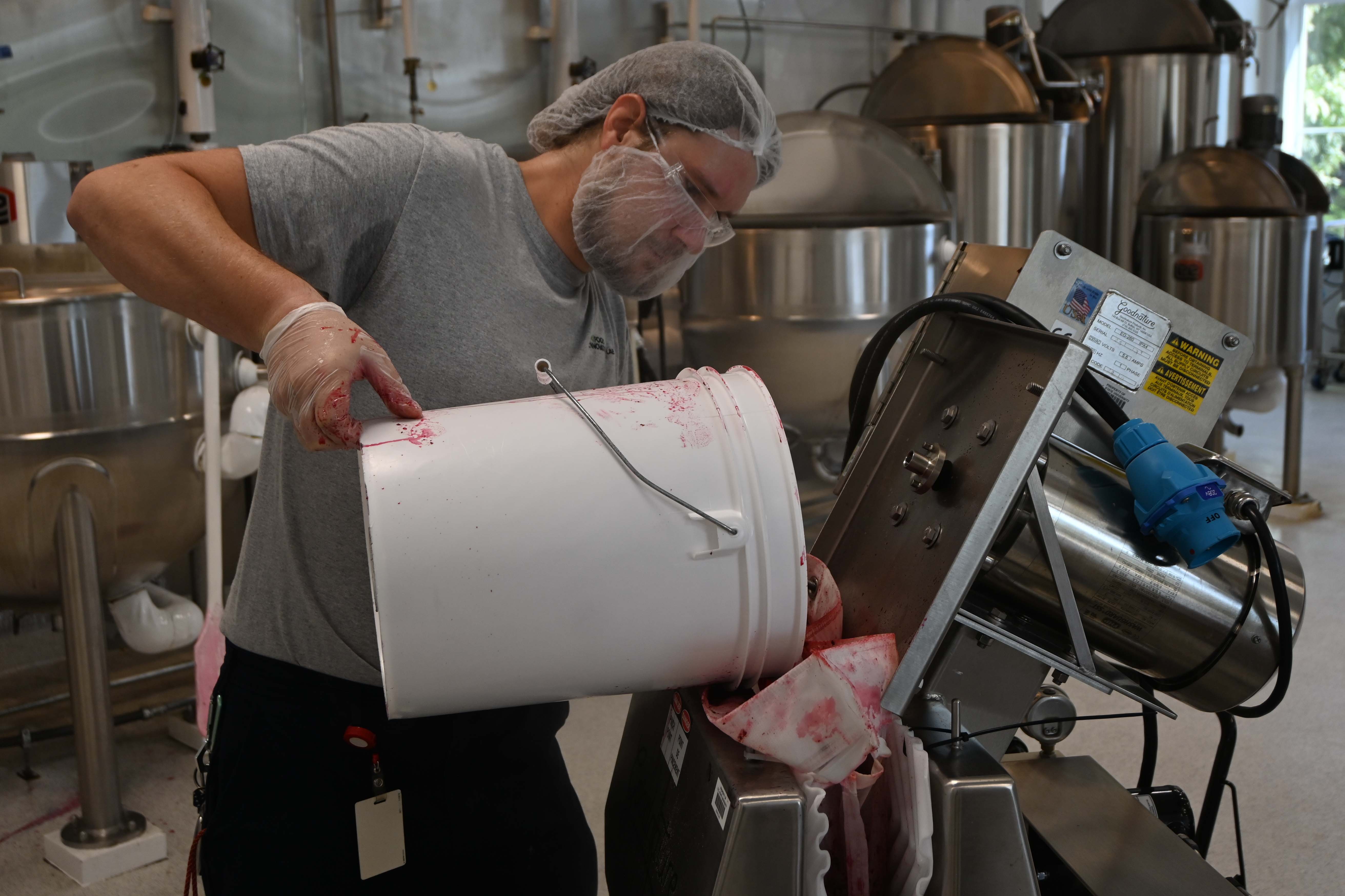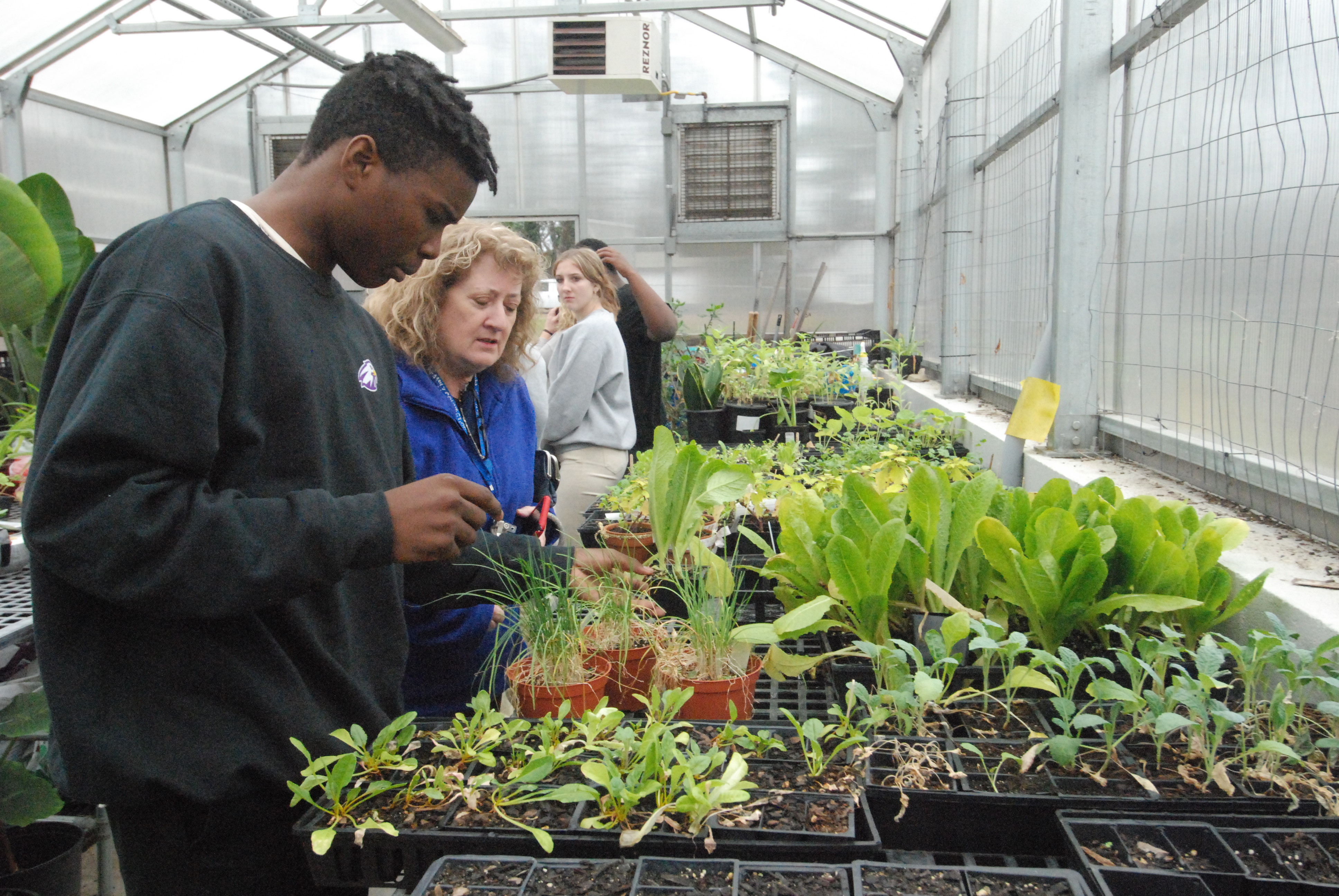Eat right for your DNA
Published 12:00 am Wednesday, March 9, 2011
By Katie Scarvey
kscarvey@salisburypost.com
“One size fits all” doesn’t work for nutrition.
That was the message delivered by Dr. Martin Kohlmeier Tuesday, March 1, at the David H. Murdock Core Laboratory Building. The presentation was part of the Nutrition Research Institute’s Appetite for Life Academy, a series of four seminars presenting the latest in nutrition science by leading experts.
Depending on a person’s genetic makeup, overconsumption or underconsumption of certain things — even coffee — can have a dramatic influence on health.
“What excites me these days is how our genetics influence what we need,” Kohlmeier told an audience of close to 100 people.
Individualized nutrition planning will be increasingly feasible with advances in genetics research, he believes.
Kohlmeier, who works in the department of nutrition at the University of North Carolina at Chapel Hill, as well as the UNC Nutrition Research Institute, has 30 years’ research experience. He’s dedicated to translating research into practical nutrition advice.
He spoke of “The Goldilocks Principle” — not getting too much or too little but just the right amount of something for optimal health.
Kohlmeier reminded his audience that iron requirements vary according to age and sex, with females 19-50 requiring more of the mineral than any other group.
He also noted that certain common factors affect our nutrition requirements. Smokers and aspirin users need more vitamin C in their diets; people with diabetes need extra zinc and other minerals.
But more is not always better, he cautioned. Too much iron is associated with deposits in the liver, heart and brain, he said, and research has shown that iron deposits in the brain are associated with a higher risk of dementia.
Everyone has somewhat different nutrition needs, Kohlmeier said, and not simply because of factors such as age, sex or physical condition. Our genes also play a role.
People have adapted historically to very different environments, Kohlmeier explained. Mammals have a tolerance for milk for a relatively short time during infancy. After weaning, the milk enzyme in the small intestine goes away in animals like elephants, monkeys and mice.
Some humans, however, have developed “lactase persistence” which means that they can continue to tolerate lactase after infancy — but only about 30 percent of humans worldwide have this ability.
In explaining how genes interact with food and nutrients, Kohlmeier explained that certain populations who carry a particular gene (G6PDH) are resistant to malaria — a good thing. This same adaptation, however, also causes a food intolerance — sensitivity to broad beans.
That may not sound like a bad tradeoff, but other genes have been identified that can affect health in significant ways. For example, those with a particular genetic variant would be wise to get extra folate (through non-fortified food), which is believed to reduce cardiovascular risk more dramatically than statin use. However, for women with a particular genetic variant, taking a multi-vitamin that contains folic acid increases the risk of breast cancer.
Things can get complicated when genetic variants come into play. While for most people, getting plenty of calcium might reduce colorectal cancer risk, for those of a certain genotype, increased calcium consumption can actually increase the risk of that disease.
Genetic information can also assist in weight loss efforts.
In people with a particular genetic variant, Kohlmeier said, consumption of saturated fat makes them burn less energy, and a study suggests that these individuals will gain 12-14 pounds more over an extended period of time if they consume the same amount of fat as a person without that particular variant.
In one of the most dramatic examples, Kohlmeier talked about a study looking at how coffee consumption can increase the risk of myocardial infarction — or heart attack. Although some people can drink four cups with no additional risk, those with a particular genetic variant who drink a lot of coffee (or other sources of caffeine) can significantly decrease their risk by cutting consumption to only one cup.
In fact, cutting coffee consumption in these individuals can decrease the risk by more than 33 percent. Compare that to the effectiveness of prescription statins, which decrease risk by only 10-15 percent.
Kohlmeier emphasized that genetic information must be used safely and securely, since it could have insurance ramifications for those whose genetic profile puts them in groups that are at higher risk for serious health conditions.
• • •
Kohlmeier is looking for people who are interested in being part of his genetic research. Although those selected to participate will not have access to their personal results, they will be able to use a computer program that does factor in their own personal genetic profile to craft individualized meal plans.
If you are interested in being part of Kohlmeier’s genetic research, e-mail him at mkohlmeier@unc.edu.
Subjects will remain anonymous but will have access to a personalized online nutrition guidance program based on the results of testing .
• • •
The final seminar in the Appetite for Life Academy, set for March 15, will feature Dr. Elizabeth Mayer-Davis speaking about the latest in childhood diabetes research, with a focus on how nutrition can improve the health of children with diabetes.
Mayer-Davis, an expert on childhood diabetes who was recently appointed by President Obama to the Advisory Group on Prevention, Health Promotion and Integrative and Public Health, will present information from the largest study of childhood diabetes ever conducted in this country.
The session will be held at 7 p.m. in the meeting room of the David H. Murdock Core Laboratory Building, 201 N. Main St. Kannapolis.
To register, go to www.uncnri.org. Registration is free.





